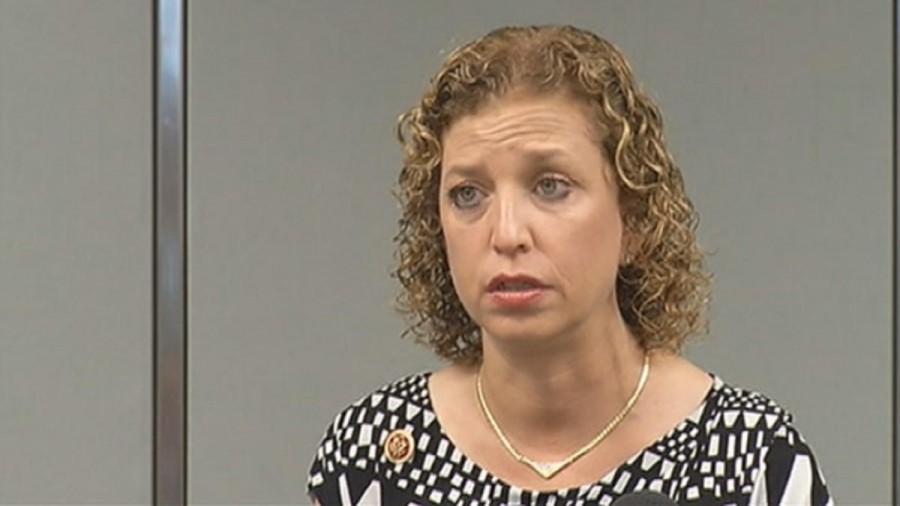Super Tuesday scares candidates and party elites alike
Debbie Wasserman Schultz, the chair of the Democratic National Committee, and other Democratic and Republican party elites should be scared after the outcome of the second Super Tuesday primaries. Although Hillary Clinton appears to be on the path to the nomination on the Democratic side, things can change in a moment as this election season has shown.
March 20, 2016
It’s not looking good for Bernie Sanders. The voters of Florida, North Carolina, Ohio, Missouri, and Illinois voted in the second Super Tuesday Primaries, on March 13, and all favored Hillary Clinton for the Democratic nomination. On the Republican side, John Kasich won his home state of Ohio, slowing the Trump Train, but Trump went on to win everywhere else. Ted Cruz didn’t win either but at least didn’t crash and burn like Marco Rubio, who lost his home state of Florida and subsequently dropped out of the race.
Many Sanders supporters were disappointed that Clinton won states Sanders should have gotten to prove his win in Michigan wasn’t a fluke. This widening of Clinton’s lead comes as a serious blow. However, some Sanders supporters are looking on the bright side. Even if he loses the nomination, his ideology has made a splash and represents a shift in the Democratic party.
Clinton’s reputation for being a career politician who will say or do whatever will get her elected can work in Sanders supporters’ favor. The unexpected challenge Sanders provided has forced Clinton to shift her positions farther left. Politicians in a pure democracy are only the mouthpieces of the people, and Clinton has the political toughness and experience to implement some of Sanders’ (and his supporters’) idealistic goals that he might not be able to. If Clinton receives the nomination, she will most likely retain her more radical positions and achieve some of Sanders’ goals.
Perhaps Marco Rubio had the roughest night of all, though, culminating in his departure from the race after he only earned six delegates, none from his home state. Donald Trump beat him in his home state of Florida by 18.7%. Despite Ohio governor John Kasich claims of being “anti-establishment,” he seems to be the establishment’s best choice after he beat Trump out of any delegates in Ohio. The Grand Old Party has found itself in a metaphorical smoking crater, with Kasich waving a little flag he made out of the ashes.
A few seem to have taken blows to the head during the implosion of modern Republican politics, including Trump and Cruz, who said they would “bar” Kasich from the convention if he didn’t drop out before then (as if they have the power to do that), former Speaker of the House John Boehner, who informally endorsed current Speaker of the House Paul Ryan for the nomination (who then rejected it), and Ben Carson, who claimed he would have at least an advisory role in a Trump presidency (but then went on to say he would have preferred to endorse another candidate, and as a way of calming the nerves of anti-Trump citizens, said a Trump presidency “would only last four years”). If this weren’t enough, popular radio host Rush Limbaugh claimed Jeb (!) Bush could attend a brokered Republican convention and sweep the nomination.
The convention, if brokered, will likely be the Republican establishment’s last line of defense against a Trump nomination. This type of convention, when the party formally names its nominee, has happened in the past when no candidate emerged from primary season clearly victorious. If the first round of voting at the convention does not produce a majority of delegates for one candidate, the convention is called “brokered” and through a set of stages, regular delegates, whose votes were pledged in the primaries, are gradually freed to vote for whomever they want. The candidates all try to get themselves votes, and the delegates re-vote as many times as it takes to decide a clear winner.
In this situation, Trump is unlikely to win, because all the establishment Republicans at the convention will be securing delegates for their own candidate (as of right now, Kasich). However, not just anybody can win, even in a brokered convention. The Republican rules currently state that any nominee has to win a simple majority in at least eight state primaries. This prevents someone like Jeb (!) Bush (or Mitt Romney, or Paul Ryan, or anyone else) from swooping in and taking the nomination. As of now, only Trump has fulfilled the requirement. This rule, however, which was implemented in 2012, is technically temporary and could be changed at a brokered convention.
Three Super Tuesdays in, this election is far from over. The Republican establishment is fighting tooth and nail against Trump, and Sanders has promised to stay in the race until the end. Hopefully party elites have got this whole spectacle recorded on their DVRs, because both sets of elites are too busy with their own problems to enjoy spectating the disaster in the party.






![A group of juniors play “Clash Royale” on their phones during lunch. Lunch is the only time when phones are allowed to be out. “I think once we adapt to it, it's not going to be something we miss because [for] everyone moving forward, that'll have been the policy [since] middle school,” DNA science and biology teacher Aubrie Holman said.](https://www.tjtoday.org/wp-content/uploads/2025/09/IMG_6621-2-e1758016994220-300x239.jpeg)